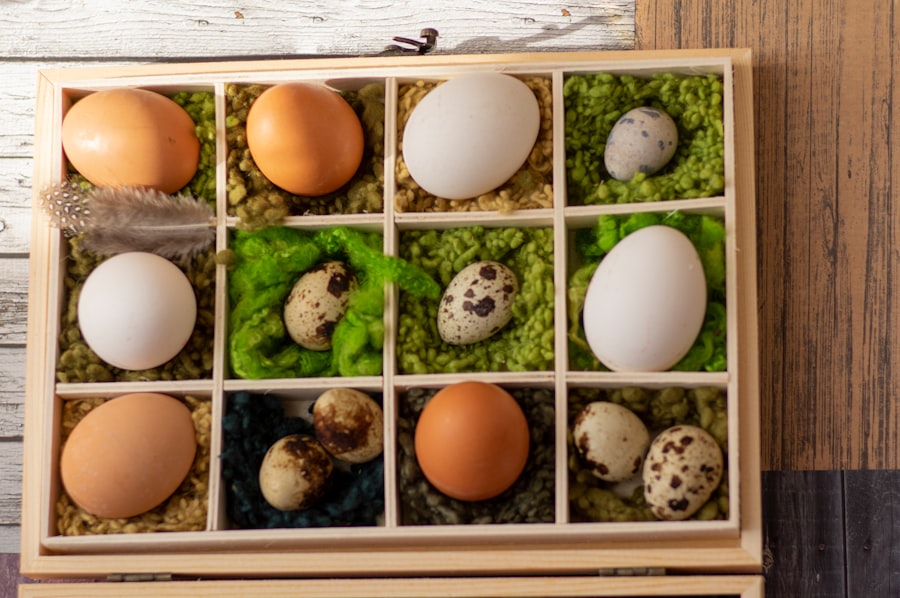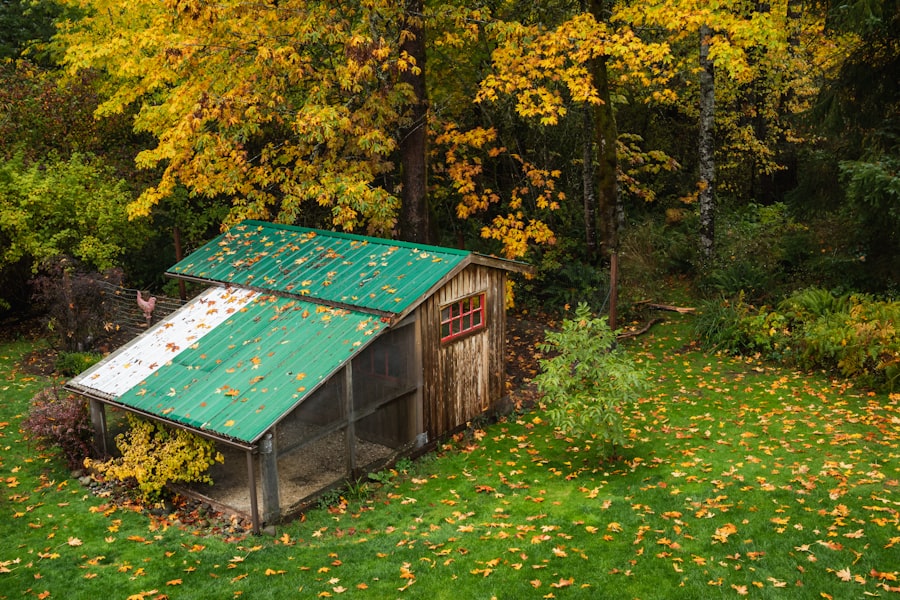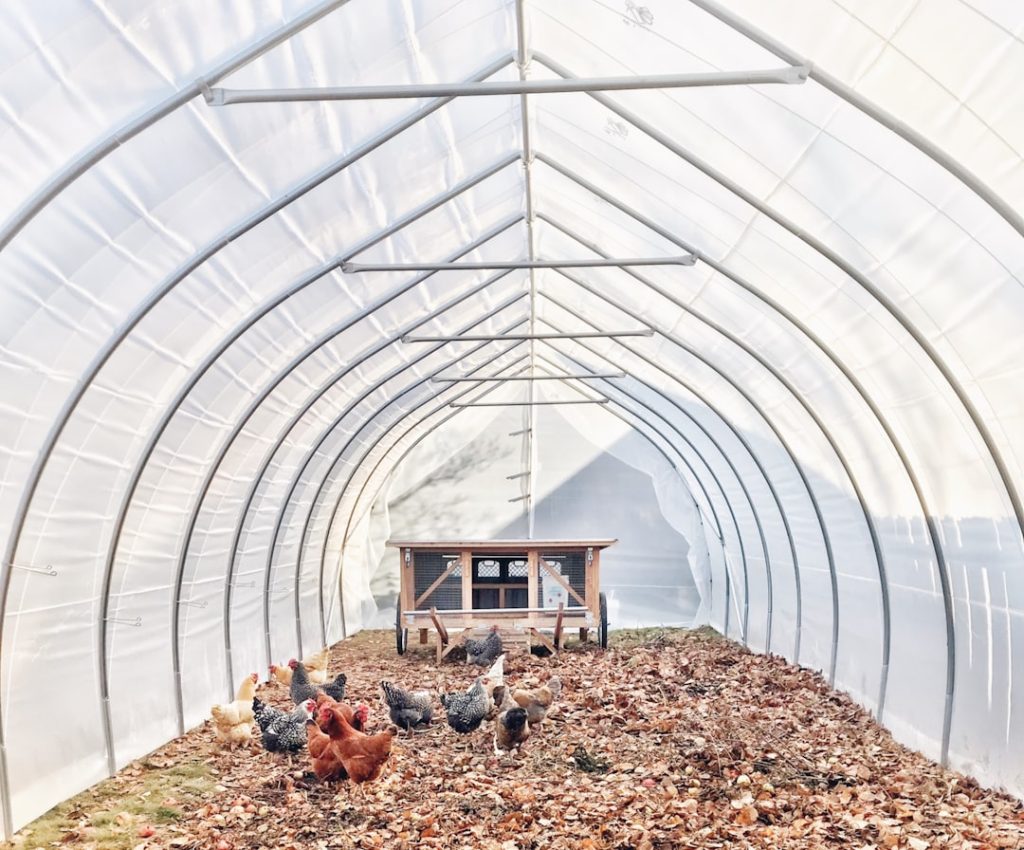Indoor chicken keeping has gained popularity among poultry enthusiasts for various reasons, including limited outdoor space, extreme weather conditions, or a preference for closer proximity to the birds. This practice differs from traditional free-range chicken keeping, offering a more controlled and protected environment for the chickens. When considering indoor chicken keeping, several factors must be taken into account, such as space requirements, ventilation, lighting, and waste management.
The duration of indoor confinement can vary depending on circumstances, but it is essential to provide adequate stimulation and exercise for the birds. Benefits of indoor chicken keeping include protection from predators and harsh weather, easier monitoring of health and egg production, and reduced risk of disease transmission from wild birds. However, potential risks include increased stress, behavioral issues, and higher maintenance requirements.
To ensure the health and well-being of indoor chickens, proper nutrition, regular cleaning, and environmental enrichment are crucial. When transitioning chickens from indoors to outdoors, a gradual process is recommended to allow the birds to acclimate to their new surroundings and develop natural behaviors.
Table of Contents
- 1 Factors to Consider When Keeping Chickens Indoors
- 2 Recommended Duration for Keeping Chickens Indoors
- 3 Benefits of Keeping Chickens Indoors
- 4 Potential Risks of Keeping Chickens Indoors
- 5 Tips for Keeping Chickens Healthy and Happy Indoors
- 6 Transitioning Chickens from Indoors to Outdoors
- 7 FAQs
- 7.1 What is the recommended time to keep chickens indoors?
- 7.2 Why do chickens need to be kept indoors for a certain period of time?
- 7.3 What are the benefits of keeping chickens indoors for a specific duration?
- 7.4 What should be provided for chickens while they are kept indoors?
- 7.5 How can I ensure a smooth transition for chickens from indoors to outdoors?
Key Takeaways
- Keeping chickens indoors can be a convenient and practical option for many urban or suburban dwellers.
- Factors to consider when keeping chickens indoors include space, ventilation, lighting, and cleanliness.
- The recommended duration for keeping chickens indoors is typically during extreme weather conditions or for short periods during illness or quarantine.
- Benefits of keeping chickens indoors include protection from predators, better control of their environment, and easier access for care and maintenance.
- Potential risks of keeping chickens indoors include lack of natural sunlight, limited space for exercise, and increased risk of disease transmission.
Factors to Consider When Keeping Chickens Indoors
Space and Ventilation
Chickens require ample space to move around, stretch their wings, and engage in natural behaviors such as scratching and dust bathing. When kept indoors, it’s essential to provide enough room for each bird to prevent overcrowding and potential stress-related issues. Additionally, ventilation is key to maintaining a healthy indoor environment for chickens. Proper airflow helps regulate temperature, reduce moisture buildup, and minimize the risk of respiratory issues.
Lighting and Rhythms
Chickens require a consistent light-dark cycle to maintain their natural rhythms and egg production. Adequate lighting should be provided to mimic natural daylight patterns and ensure the well-being of the birds.
Cleanliness, Enrichment, and Care
Cleanliness and hygiene are crucial when keeping chickens indoors. Regular cleaning and sanitation of the coop or indoor space are essential for preventing disease and maintaining a healthy living environment for the birds. When it comes to feeding and watering, it’s important to provide easy access to fresh food and water for the chickens. Additionally, enrichment activities such as perches, nesting boxes, and toys can help keep the birds mentally and physically stimulated while indoors.
Recommended Duration for Keeping Chickens Indoors

The duration for keeping chickens indoors can vary depending on individual circumstances and needs. In some cases, chickens may be kept indoors temporarily due to extreme weather conditions such as harsh winters or severe storms. During these times, providing a safe and warm indoor environment can help protect the birds from the elements and ensure their well-being.
However, prolonged indoor confinement should be avoided whenever possible, as it can lead to stress, behavioral issues, and reduced overall health for the chickens. For those who choose to keep chickens indoors on a more permanent basis, it’s important to provide regular opportunities for outdoor access when weather conditions permit. Allowing chickens to spend time outdoors provides them with essential sunlight, fresh air, and opportunities for natural behaviors such as foraging and dust bathing.
Ideally, chickens should have access to both indoor and outdoor spaces to ensure their physical and psychological well-being. When considering the duration for keeping chickens indoors, it’s important to prioritize the birds’ welfare and provide opportunities for outdoor enrichment whenever possible.
Benefits of Keeping Chickens Indoors
There are several benefits to keeping chickens indoors that may appeal to poultry enthusiasts. One of the primary advantages is the ability to protect chickens from predators and extreme weather conditions. Indoor housing provides a secure and controlled environment that minimizes the risk of predation and exposure to harsh elements.
Additionally, indoor chicken keeping allows for easier monitoring of the birds’ health and behavior, making it easier to detect any potential issues or illnesses early on. Another benefit of keeping chickens indoors is the ability to maintain a cleaner living environment for both the birds and their human caretakers. Indoor coops or housing can be more easily managed in terms of cleanliness and sanitation, reducing the risk of disease transmission and minimizing odors associated with poultry keeping.
Furthermore, indoor chicken keeping can be a practical solution for those with limited outdoor space or urban settings where free-ranging may not be feasible. In addition to these practical benefits, keeping chickens indoors can also provide a sense of companionship and connection with the birds. Many poultry enthusiasts enjoy spending time with their chickens indoors, observing their behaviors, and forming bonds with their feathered friends.
Overall, the benefits of keeping chickens indoors include enhanced safety and security, easier monitoring of health and behavior, a cleaner living environment, practicality in urban settings, and opportunities for companionship with the birds.
Potential Risks of Keeping Chickens Indoors
While there are benefits to keeping chickens indoors, there are also potential risks that should be considered. One of the primary concerns is the risk of reduced physical activity and natural behaviors when confined to an indoor space. Chickens are naturally active foragers and enjoy scratching, pecking, dust bathing, and exploring their outdoor environment.
When kept indoors for extended periods without access to outdoor spaces, chickens may experience boredom, stress, and reduced physical fitness. Another potential risk of indoor chicken keeping is the increased likelihood of respiratory issues due to poor ventilation or air quality. Without proper airflow and ventilation, indoor spaces can become humid and stagnant, leading to an increased risk of respiratory infections in chickens.
Additionally, overcrowding in indoor environments can contribute to stress-related issues and aggressive behaviors among the birds. Furthermore, maintaining a clean living environment indoors requires consistent effort and attention to hygiene. Failure to properly manage cleanliness and sanitation can lead to an increased risk of disease transmission among the birds.
It’s important to be vigilant about maintaining a clean living space for indoor chickens to minimize these risks. Overall, potential risks of keeping chickens indoors include reduced physical activity and natural behaviors, increased risk of respiratory issues due to poor ventilation, overcrowding-related stress and aggression, and heightened risk of disease transmission in unclean living environments.
Tips for Keeping Chickens Healthy and Happy Indoors

Providing a Comfortable Environment
To ensure the health and happiness of indoor chickens, providing ample space for the birds is essential for their well-being. A spacious indoor environment allows for natural behaviors such as scratching, perching, and dust bathing.
Enrichment and Ventilation
Additionally, providing enrichment activities such as perches, nesting boxes, and toys can help keep chickens mentally stimulated while indoors. Proper ventilation is crucial for maintaining good air quality in indoor chicken housing. This can be achieved through the use of windows, vents, fans, or other ventilation systems that promote airflow and regulate temperature and humidity levels.
Hygiene and Nutrition
Regular cleaning and sanitation of the indoor space are also essential for preventing disease transmission and maintaining a healthy living environment for the birds. In terms of nutrition, it’s important to provide a balanced diet that meets the nutritional needs of the chickens. Fresh water should be readily available at all times, and access to natural light or supplemental lighting should be provided to maintain a consistent light-dark cycle for the birds.
Building a Strong Bond
Lastly, spending quality time with the chickens can contribute to their overall well-being. Interacting with the birds, observing their behaviors, and providing gentle handling can help strengthen the bond between poultry enthusiasts and their feathered friends. By implementing these tips for keeping chickens healthy and happy indoors, poultry enthusiasts can ensure that their indoor birds thrive in a controlled environment.
Transitioning Chickens from Indoors to Outdoors
When the time comes to transition chickens from an indoor environment to outdoor spaces, it’s important to do so gradually and thoughtfully. Outdoor access provides essential sunlight, fresh air, natural enrichment opportunities, and space for physical activity that are beneficial for the overall well-being of the birds. Before transitioning chickens outdoors, it’s important to assess the safety of the outdoor environment in terms of predator protection and secure fencing.
Additionally, gradual acclimation to outdoor temperatures should be considered if transitioning during extreme weather conditions. To facilitate a smooth transition from indoors to outdoors, poultry enthusiasts can gradually introduce outdoor access by providing supervised time in a secure outdoor enclosure or run. This allows chickens to become familiar with their new surroundings while remaining protected from potential predators.
As chickens become more accustomed to outdoor spaces, they can be given increasing amounts of supervised free-range time in a secure outdoor area. Monitoring their behavior and interactions with the outdoor environment can help ensure a successful transition from indoor confinement to outdoor freedom. Overall, transitioning chickens from indoors to outdoors should be approached with care and consideration for their safety and well-being.
By gradually introducing outdoor access in a secure environment, poultry enthusiasts can provide their feathered friends with opportunities for natural behaviors while ensuring their safety in an outdoor setting.
If you’re wondering how long you need to keep chickens indoors, you may also be interested in learning about the importance of the floor of a chicken coop. This article discusses the different types of flooring options for chicken coops and how to maintain a clean and healthy environment for your chickens. Understanding the best flooring for your coop can contribute to the overall well-being of your flock.
FAQs
What is the recommended time to keep chickens indoors?
The recommended time to keep chickens indoors is typically 6-8 weeks, or until they are fully feathered and able to regulate their body temperature.
Why do chickens need to be kept indoors for a certain period of time?
Chickens need to be kept indoors for a certain period of time to protect them from predators, harsh weather conditions, and to ensure they are healthy and strong before being allowed to roam freely outside.
What are the benefits of keeping chickens indoors for a specific duration?
Keeping chickens indoors for a specific duration allows them to grow and develop in a controlled environment, reducing the risk of disease, injury, and stress. It also helps them acclimate to their surroundings and establish a routine.
What should be provided for chickens while they are kept indoors?
While chickens are kept indoors, they should be provided with a clean and spacious living area, access to fresh water, proper nutrition, and adequate ventilation. It’s also important to provide them with opportunities for exercise and mental stimulation.
How can I ensure a smooth transition for chickens from indoors to outdoors?
To ensure a smooth transition for chickens from indoors to outdoors, gradually introduce them to the outdoor environment by allowing them supervised access to a secure outdoor area. This helps them adjust to the new surroundings and reduces the risk of stress or injury.
Meet Walter, the feathered-friend fanatic of Florida! Nestled in the sunshine state, Walter struts through life with his feathered companions, clucking his way to happiness. With a coop that’s fancier than a five-star hotel, he’s the Don Juan of the chicken world. When he’s not teaching his hens to do the cha-cha, you’ll find him in a heated debate with his prized rooster, Sir Clucks-a-Lot. Walter’s poultry passion is no yolk; he’s the sunny-side-up guy you never knew you needed in your flock of friends!







